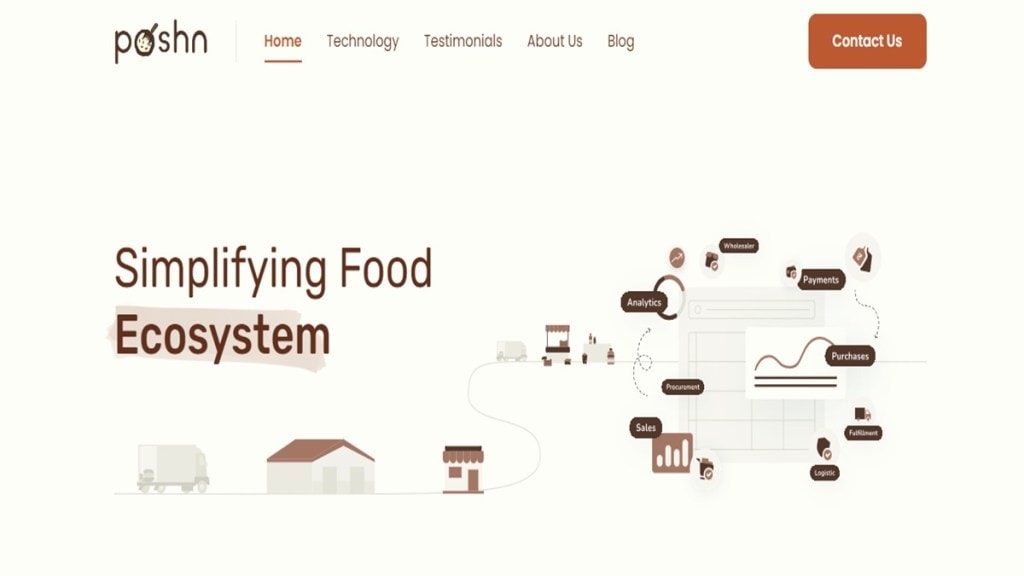Poshn, a full-stack foodtech supply chain startup, on Monday announced it has raised $4 million in equity and $2 million in debt in its pre-series A funding round led by existing investors Prime Venture Partners and Zephyr Peacock India. The latest capital infusion brings total equity funding to around $8 million since the company’s inception in 2020. In 2022, the startup had raised $4 million in equity in a seed round from Prime Venture Partners and Zephyr Peacock.
The company aims to support growth for food MSMEs and institutions through its full-stack supply chain solution including demand aggregation from various channels of trade, embedded finance for working capital, vendor partnerships for logistics, warehousing and more, and SaaS solutions.
Poshn said it will use the funds to further build its stack of solutions that address the gaps in the food system, aiming to create the largest distribution network. It will also deploy the funds to expand the business to global markets with imports/ exports in profitable categories to Southeast Asian and Middle Eastern countries.
Speaking on the fundraise, Shashank Singh, Co-founder, Poshn, said, “Poshn has already cemented its position in the wholesale segment over the last three years. With the trust of investing partners and infusion of fresh equity, we aggressively integrate forward and backward in the chain and open foreign/export markets over the next 12 months while growing profitably.”
Over the past three years, Poshn said its revenue has skyrocketed six-fold from FY22 to FY24 and has been EBITDA profitable.
“Poshn has led by being a supply-first company and has meaningfully solved for the B2B food value chain. The company has always been bottom-line focused with a remarkable ROCE and wants to continue expanding that further by going deeper into the supply chain while also pursuing some full-stack vertical integrations,” said Prime Venture Partners.
According to the company, the food supply chain market is worth more than $800 billion and is highly fragmented on the supply side. The chain experiences inefficiencies due to a slew of intermediaries or middlemen, poor capacity planning, a lack of predictable demand, and a lack of technology – areas where Poshn is focusing at.

